Greece Travel Guide
Greece Travel Guide – plan your trip to Greece with our travel guide including how to get around, things to see and do, what and where to eat and many more.
Welcome to Greece, a captivating Mediterranean paradise that enchants visitors with its rich history, stunning landscapes, and warm hospitality. Steeped in ancient mythology and boasting a wealth of archaeological treasures, Greece is a destination that appeals to both history buffs and sun-seeking vacationers. The birthplace of democracy, this country is home to iconic landmarks such as the Acropolis in Athens, where the magnificent Parthenon stands as a testament to the grandeur of ancient Greek civilization. Immerse yourself in the vibrant culture, savor delectable Mediterranean cuisine, and bask in the Mediterranean sunshine on Greece’s idyllic islands.
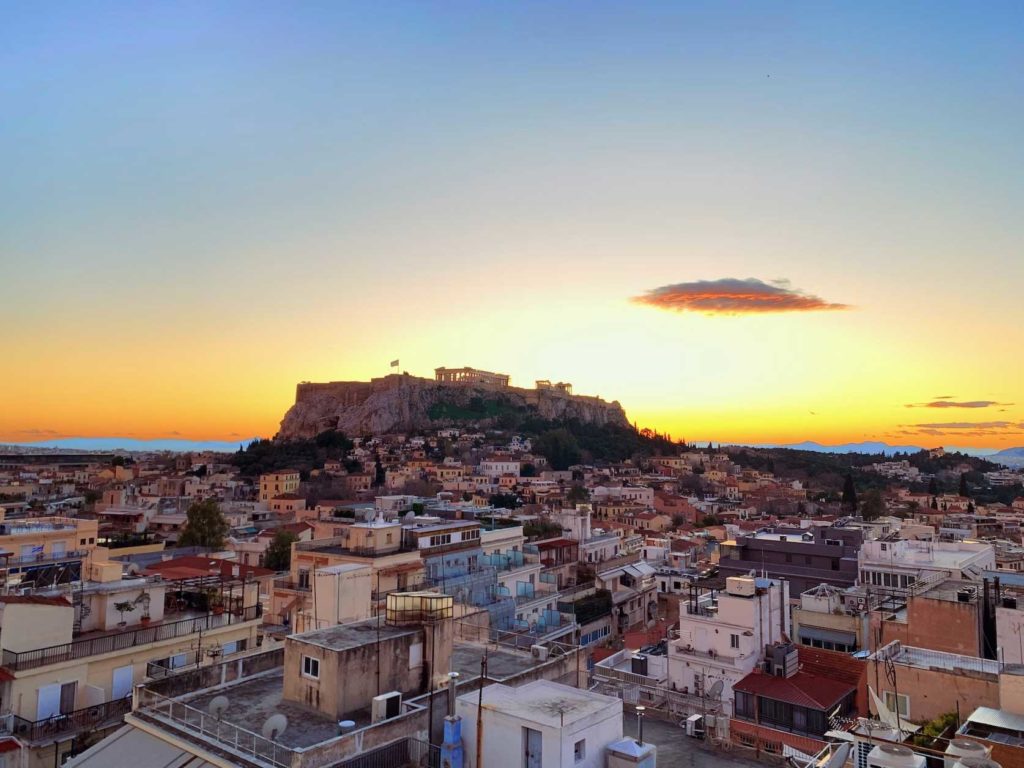
Travel to Greece
Beyond its historical marvels, Greece’s natural beauty is simply breathtaking. From the azure waters of the Aegean Sea to the rugged mountain ranges of the mainland, there is something for every nature enthusiast. Explore the iconic island of Santorini, famous for its white-washed buildings perched atop cliffs overlooking the sea. Or discover the charm of the Greek islands of Mykonos, Rhodes, or Crete, each offering its own unique blend of picturesque landscapes, crystal-clear beaches, and vibrant nightlife.
Greek hospitality is legendary, and the locals’ warmth and friendliness make visitors feel instantly welcome. Take part in traditional Greek customs and festivals, where you can witness lively music, energetic dancing, and colorful costumes. Indulge in Greek cuisine, renowned for its freshness and flavors. Savor traditional dishes such as moussaka, souvlaki, and tzatziki, accompanied by a glass of ouzo, the iconic Greek anise-flavored aperitif.
In Greece, history comes alive, nature beckons, and the Mediterranean lifestyle invites you to relax and enjoy every moment. Whether you’re exploring ancient ruins, lounging on sun-kissed beaches, or sipping on a frappe in a quaint café, Greece offers a truly unforgettable experience for every traveler. Get ready to immerse yourself in the magic of Greece, where myth, history, and natural beauty converge to create a destination that will captivate your heart and soul.
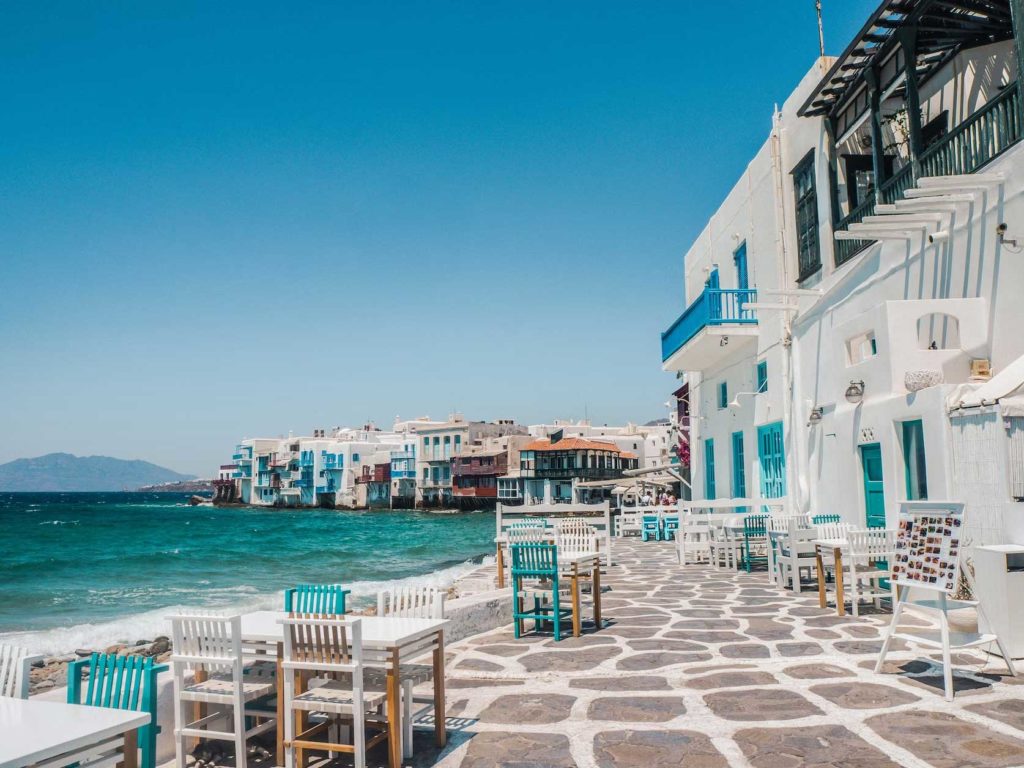
Best time to go to Greece – the 4 seasons in Greece
The best time to visit Greece depends on your preferences and the activities you plan to engage in. Generally, the peak tourist season in Greece is during the summer months of June to August when the weather is hot and sunny. This is the ideal time for beach lovers and those looking to explore the Greek islands. However, keep in mind that popular destinations can get crowded, and prices may be higher during this period.
Spring (March to May) and autumn (September to November) are considered shoulder seasons and can be great times to visit Greece. The weather is mild, and crowds are smaller, allowing for a more relaxed experience. Spring is particularly beautiful, with blooming wildflowers and pleasant temperatures, while autumn offers pleasant weather for exploring archaeological sites and enjoying outdoor activities.
Winter in Greece (December to February) is characterized by cooler temperatures, especially in the northern parts of the country. The islands and coastal areas have milder winters, making them a good choice for winter getaways. This season is ideal for those interested in cultural exploration, as you can visit historical sites without the crowds and enjoy traditional festivals.
Overall, Greece experiences a Mediterranean climate, characterized by hot, dry summers and mild, wet winters. Summers are typically sunny and warm, with temperatures reaching their peak in July and August, often exceeding 30°C (86°F). Spring and autumn are generally mild, with temperatures ranging from 15°C to 25°C (59°F to 77°F). Winters are cooler, especially in the northern regions, with temperatures averaging around 10°C (50°F), but coastal areas and islands have milder winters with temperatures ranging from 10°C to 15°C (50°F to 59°F).
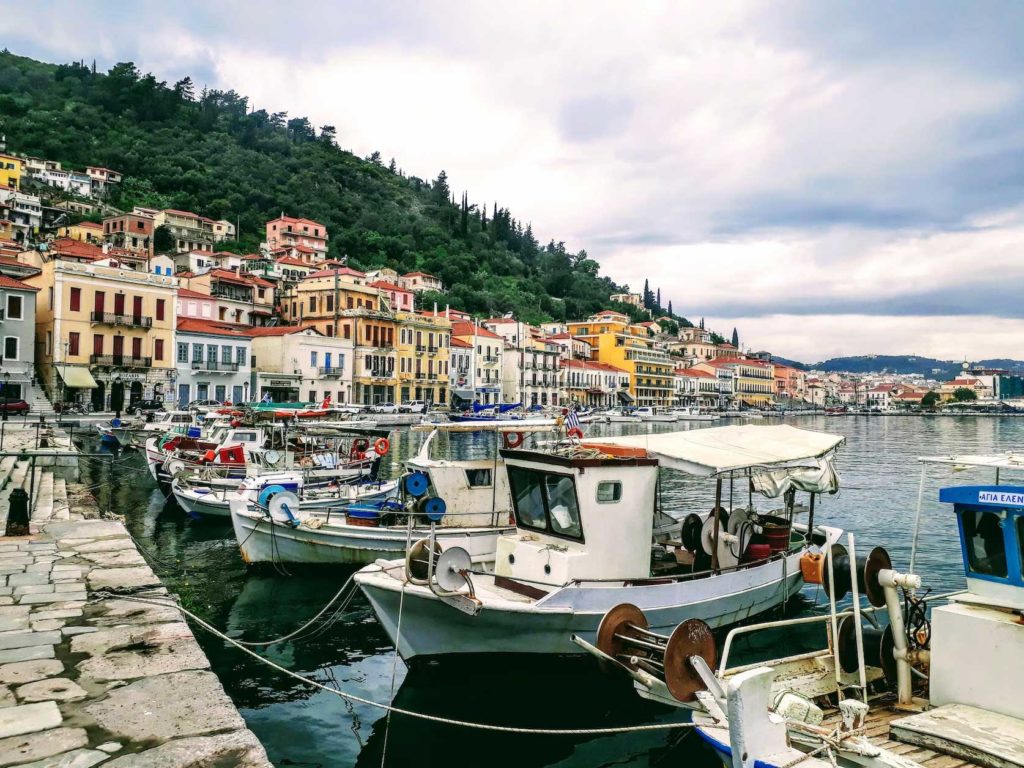
Entry and visa requirements in Greece
The visa requirements for traveling to Greece depend on your nationality. Here are some general guidelines:
- American Citizens: If you hold a valid U.S. passport, you do not need a visa to enter Greece for tourism or business purposes for stays up to 90 days within a 180-day period. This falls under the visa-free travel program between the United States and the countries in the Schengen Area, which includes Greece.
- European Union (EU) Citizens: If you are a citizen of an EU member state, you do not need a visa to travel to Greece. EU citizens have the right to free movement within the Schengen Area, including Greece.
- Other Nationalities: If you hold a passport from a country that is not part of the European Union or the visa-free travel program, you may need to apply for a Schengen visa to visit Greece. The specific visa requirements vary depending on your nationality. It is recommended to check with the Greek embassy or consulate in your country for the most up-to-date information.
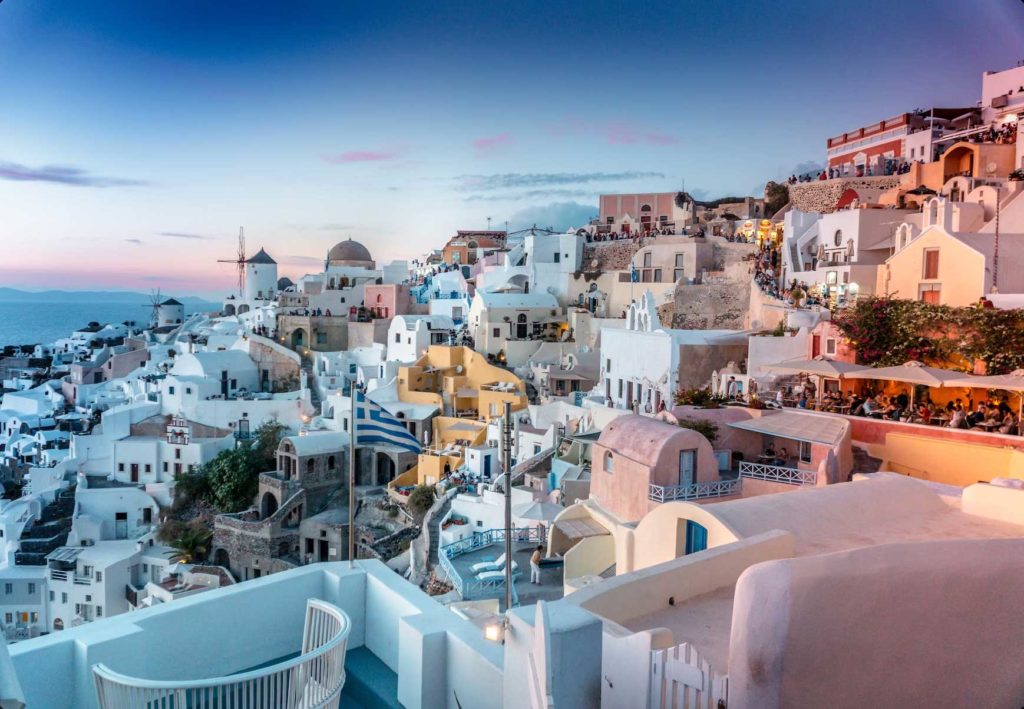
How to get around Greece
Greece offers various transportation options to help you get around and explore the country efficiently. Here are some common methods of transportation in Greece:
Domestic Flights: If you’re traveling long distances or planning to visit the Greek islands, domestic flights are a convenient option. Greece has several airports, including Athens International Airport, which serves as the main hub. Domestic airlines operate regular flights connecting major cities and popular tourist destinations.
Ferries: Greece is famous for its picturesque islands, and ferries are an essential mode of transportation for island hopping. There are numerous ferry routes connecting the mainland with the islands and inter-island routes. The Greek ferry system is well-developed and offers a range of options, from regular passenger ferries to high-speed catamarans. Popular ferry ports include Piraeus (Athens), Rafina, and Thessaloniki.
Trains: Greece has a rail network that connects major cities and towns, offering scenic journeys and a comfortable travel experience. Train services are operated by the Hellenic Railways Organization (OSE). However, train coverage is more limited compared to other modes of transportation, and some regions may be better accessed by bus or car.
Buses: Buses are a popular and cost-effective means of transportation in Greece. KTEL is the main bus operator, offering both intercity and regional services. Intercity buses connect major cities and towns, while regional buses serve smaller destinations and villages. Buses are a convenient option for exploring mainland Greece, and they also provide connections to popular tourist sites.
Car Rental: Renting a car gives you the flexibility to explore Greece at your own pace, especially if you plan to venture off the beaten path. Car rental agencies are available in major cities, airports, and tourist destinations. However, keep in mind that driving conditions in Greece may be different from what you’re used to, and some islands may have limited road infrastructure.
Public Transportation: Greece’s major cities, such as Athens and Thessaloniki, have well-established public transportation systems. These include buses, metro systems, and trams, making it convenient to navigate within the urban areas. Athens, in particular, has an extensive metro network that connects various neighborhoods and landmarks.
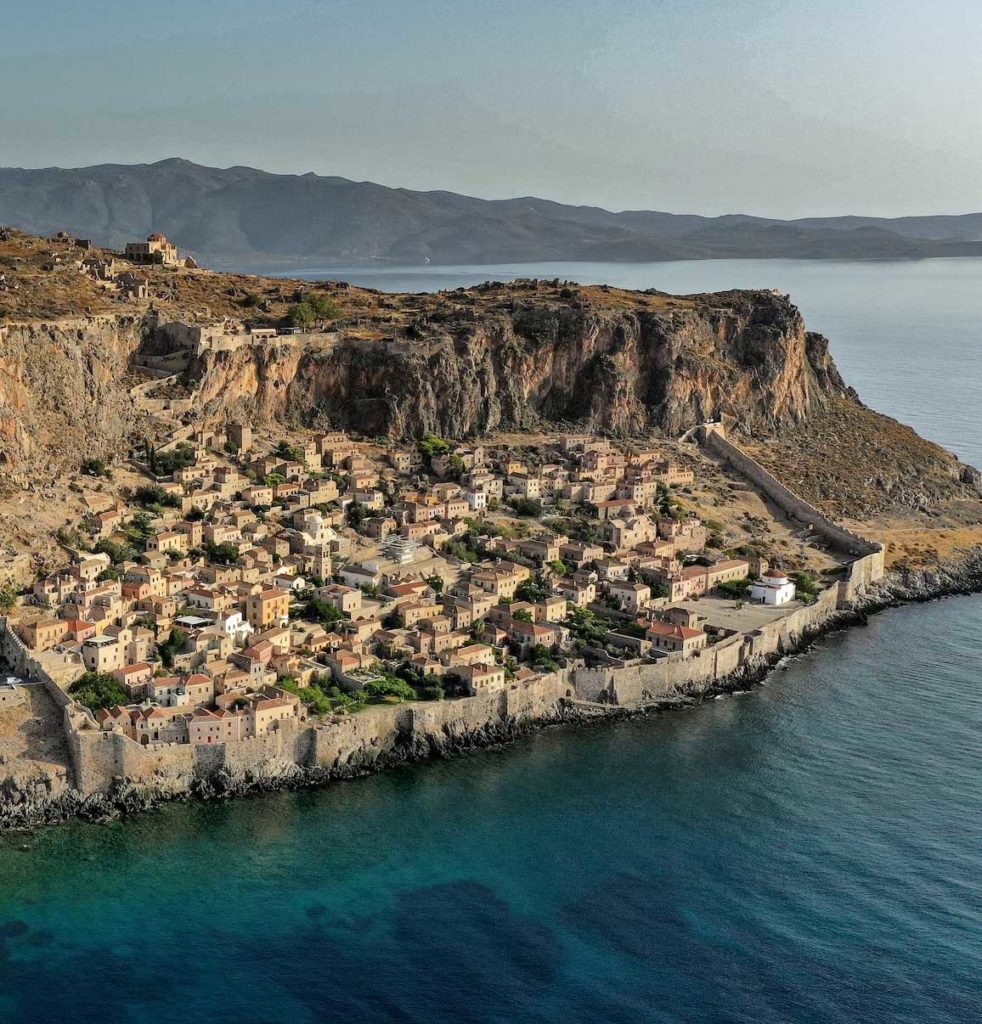
Explore the regions in Greece
Attica
Attica is the region that encompasses Athens, the vibrant capital city of Greece. Athens is renowned for its historical treasures, with iconic landmarks like the Acropolis, Parthenon, and Ancient Agora. Explore the Plaka neighborhood, known for its charming streets, traditional tavernas, and shops. Don’t miss the impressive National Archaeological Museum, housing an extensive collection of ancient artifacts. For dining, head to Psiri or Monastiraki, where you can savor traditional Greek cuisine at local tavernas or enjoy rooftop dining with breathtaking views of the Acropolis.
Athens
Athens, the capital city of Greece, is a vibrant and historical destination that beautifully combines ancient heritage with modern charm. The iconic Acropolis, including the Parthenon and other ancient ruins, dominates the city’s skyline and offers a glimpse into Greece’s rich history. Visitors can explore the fascinating Acropolis Museum and wander through the narrow streets of the Plaka neighborhood, known for its traditional tavernas and charming shops. Additionally, Athens boasts a thriving nightlife scene, with trendy bars and clubs to enjoy.
Santorini
Santorini is a breathtakingly beautiful island located in the Cyclades archipelago. Its picturesque whitewashed buildings perched atop cliffs overlooking the deep blue Aegean Sea create an unforgettable backdrop. The island is famous for its stunning sunsets, particularly in the village of Oia. Exploring the enchanting villages of Fira and Kamari, with their narrow winding streets and charming shops, is a must. Visitors can also relax on the island’s unique black and red volcanic beaches, take a boat tour to the nearby volcanic islets, or indulge in the local cuisine and wine.
Crete
Crete, the largest Greek island, is a diverse destination offering something for everyone. The island boasts a rich history and is home to the ancient Palace of Knossos, a significant archaeological site from the Minoan civilization. Nature lovers can explore the dramatic Samaria Gorge or hike through the stunning White Mountains. For beach enthusiasts, Crete offers a variety of beautiful sandy shores, such as Elafonisi and Balos, known for their crystal-clear waters. The charming cities of Chania and Heraklion are worth visiting to experience the island’s unique culture, sample delicious Cretan cuisine, and wander through colorful local markets.
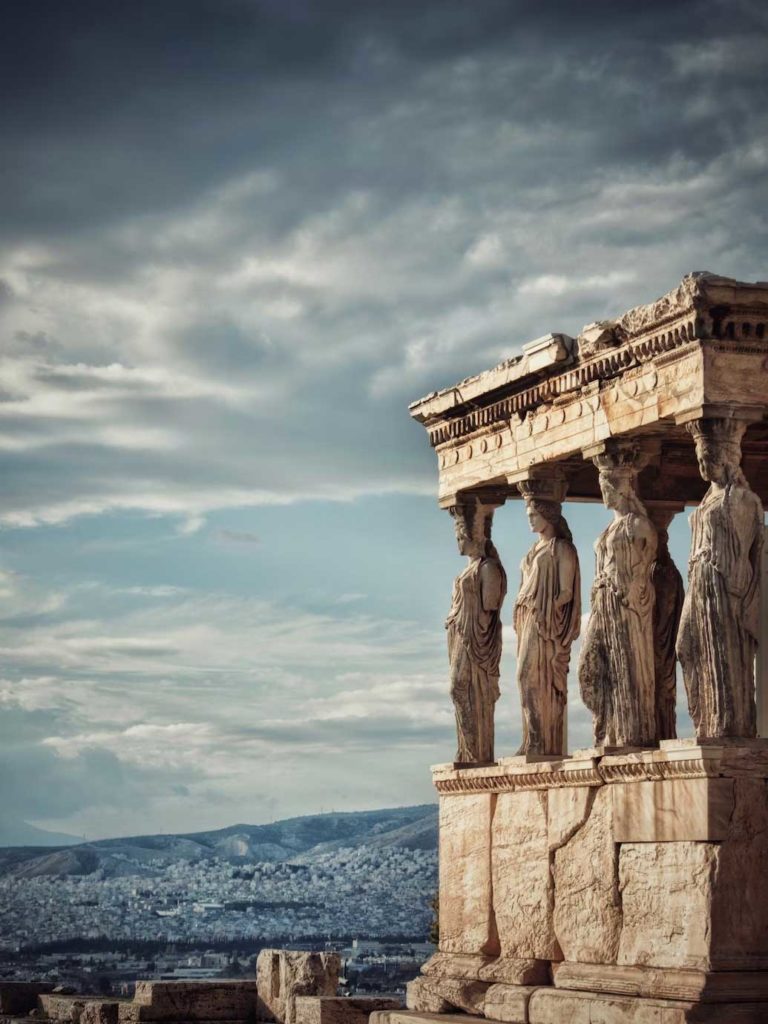
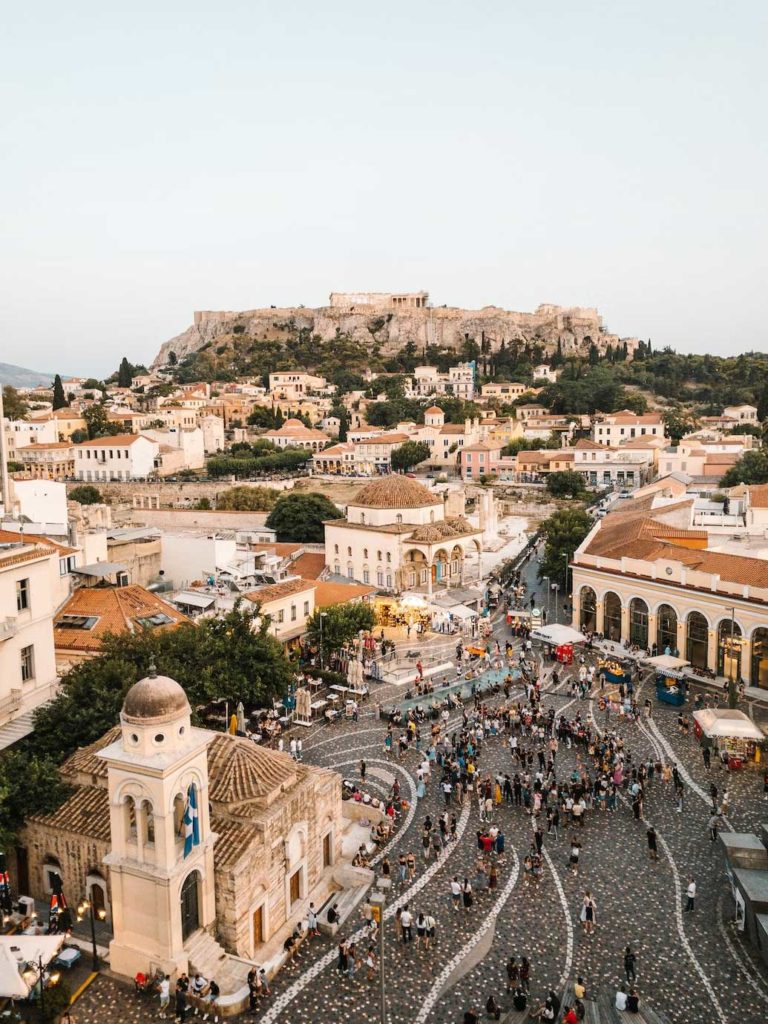
Mykonos
Mykonos is a cosmopolitan island renowned for its vibrant nightlife and stunning beaches. The island’s main town, Chora, charms visitors with its picturesque narrow streets, whitewashed houses, and colorful bougainvillea. During the day, travelers can relax on the golden sands of Paradise Beach or Super Paradise Beach, where beach bars provide a lively atmosphere. Mykonos is also famous for its iconic windmills, which offer a great photo opportunity. In the evenings, the island comes alive with trendy bars and clubs, attracting partygoers from around the world.
Rhodes
Rhodes is a captivating island in the Dodecanese archipelago, blending medieval history with beautiful beaches. The UNESCO World Heritage-listed Old Town of Rhodes is a must-visit, with its medieval walls, cobblestone streets, and charming tavernas. The Palace of the Grand Master is a major highlight, showcasing the island’s medieval past. Travelers can also explore the ancient city of Kamiros or relax on the pristine beaches of Lindos. Watersports enthusiasts will find plenty of opportunities for diving, snorkeling, and windsurfing along the island’s coastline.
Thessaloniki
Thessaloniki, Greece’s second-largest city, offers a vibrant cultural experience and a rich historical heritage. The city is home to numerous Byzantine and Ottoman monuments, such as the imposing White Tower and the Rotunda. The Archaeological Museum of Thessaloniki houses a vast collection of artifacts from various periods, including ancient Macedonia. The city’s bustling waterfront promenade is perfect for a leisurely stroll or enjoying a meal at one of the many seafood restaurants. Thessaloniki also hosts various cultural events, festivals, and a lively nightlife scene.
Peloponnese
The Peloponnese is a region rich in ancient history and natural beauty. The ancient city of Olympia, birthplace of the Olympic Games, is a major highlight, featuring the archaeological site and a fascinating museum. The fortified town of Nafplio, with its Venetian and Ottoman influences, is another must-visit destination. The region also boasts picturesque coastal towns like Kalamata and Pylos, as well as stunning beaches along its coastline. Nature enthusiasts can explore the rugged landscapes of the Mani Peninsula or hike in the magnificent Lousios Gorge.
Delphi
Located on the slopes of Mount Parnassus, Delphi is an important archaeological site and a UNESCO World Heritage site. In ancient times, Delphi was regarded as the center of the world and home to the famous Oracle of Delphi. Visitors can explore the ruins of the Temple of Apollo, the theater, and the Delphi Archaeological Museum, which houses a remarkable collection of ancient artifacts. The site offers breathtaking views of the surrounding mountains and the olive groves of the valley below, creating a serene and mystical atmosphere.


Epirus
Epirus is a region of rugged mountains, deep gorges, and pristine lakes, offering a paradise for outdoor enthusiasts. The UNESCO World Heritage-listed Zagori region is famous for its stone-built villages, ancient stone bridges, and breathtaking hiking trails, including the famous Vikos Gorge. The town of Ioannina, set on the shores of Lake Pamvotis, is known for its fascinating Ottoman history, with highlights like the Ali Pasha Castle and the unique island monasteries on the lake. Visitors can also explore the charming coastal town of Parga and relax on its beautiful beaches.
Thessaly
Thessaly is a region known for its diverse landscapes, from the majestic peaks of Mount Olympus to the stunning Meteora monasteries perched atop towering rock formations. The Meteora monasteries are a UNESCO World Heritage site and provide a unique spiritual and cultural experience. The city of Volos, located on the Pagasetic Gulf, offers a vibrant seaside atmosphere, a beautiful waterfront promenade, and a great base for exploring the nearby Mount Pelion, known for its traditional villages and scenic hiking trails. The region is also home to the enchanting Plastira Lake, perfect for outdoor activities like kayaking and fishing.
Ionian Islands
The Ionian Islands, including Corfu, Zakynthos, and Kefalonia, are renowned for their stunning beaches, turquoise waters, and lush green landscapes. Corfu, with its Venetian influence, boasts charming old towns, impressive fortresses, and beautiful coastal villages. Zakynthos is famous for its breathtaking Navagio Beach, accessible only by boat and surrounded by dramatic cliffs. Kefalonia offers picturesque fishing villages, stunning caves, and the enchanting Melissani Lake. Visitors can enjoy water sports, boat trips to hidden coves, and experience the warm hospitality of the Ionian culture.
Macedonia
Macedonia is a region that encompasses both historical and natural treasures. Thessaloniki, the vibrant capital, has a rich cultural heritage, including the Rotunda, the Archaeological Museum, and the iconic White Tower. The ancient city of Vergina, with its royal tombs, provides a glimpse into Macedonia’s ancient past. The region is also home to the picturesque Prespa Lakes, where visitors can enjoy bird-watching and tranquil boat rides. The imposing Mount Olympus, considered the residence of the ancient Greek gods, offers hiking trails for nature enthusiasts, leading to stunning vistas.
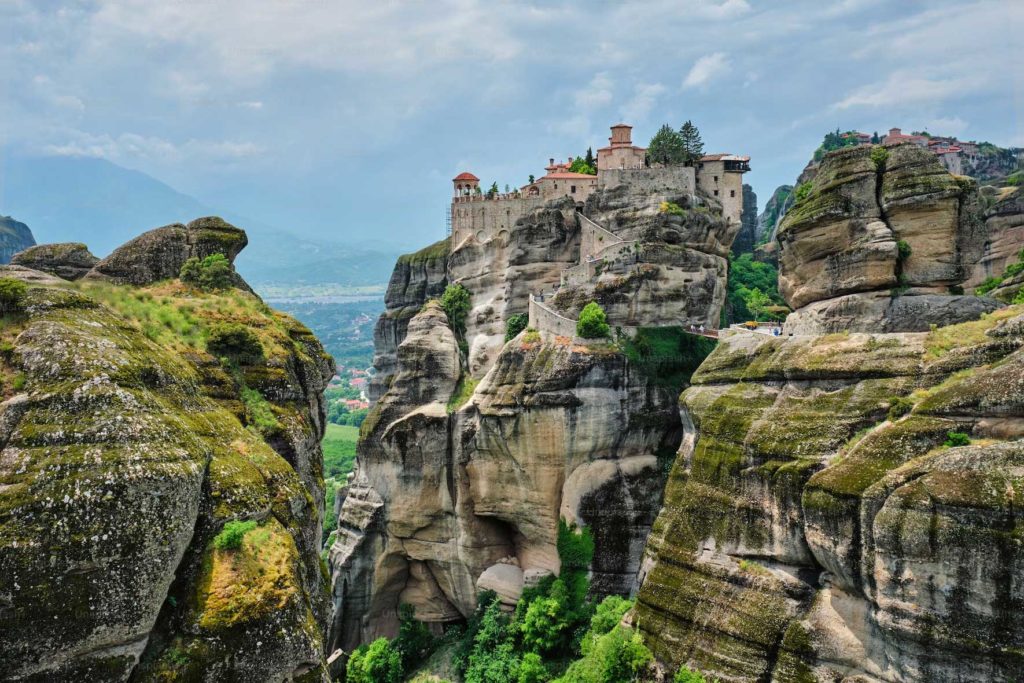
Explore the cities of Greece
Athens, the capital city of Greece, is a treasure trove of history and culture. The city is home to the iconic Acropolis, where the majestic Parthenon stands as a symbol of ancient Greek civilization. Explore the ancient Agora, visit the fascinating Acropolis Museum, and take a stroll through the historic Plaka neighborhood with its charming streets and traditional tavernas. For a modern touch, explore the vibrant neighborhoods of Monastiraki and Psiri, filled with trendy shops, cafes, and nightlife venues. Athens offers a rich blend of historical landmarks, bustling city life, and a vibrant culinary scene that will captivate any visitor.
Thessaloniki, the second-largest city in Greece, boasts a vibrant atmosphere and a rich multicultural heritage. Start your exploration at the White Tower, an iconic landmark offering panoramic views of the city and the Thermaic Gulf. Visit the Rotunda, originally built as a Roman mausoleum, and the Arch of Galerius, showcasing intricate architectural details. Stroll along Aristotelous Square, lined with cafes and shops, and visit the Archaeological Museum of Thessaloniki to delve into the city’s history. Enjoy the lively nightlife in the Ladadika district, known for its atmospheric bars and tavernas serving mouthwatering local cuisine.
Heraklion, the capital of Crete, is a city that seamlessly blends history and modernity. Start your exploration at the ancient Palace of Knossos, the legendary center of the Minoan civilization. Wander through the colorful streets of the old town and explore the Venetian fortress, Koules. Visit the Heraklion Archaeological Museum, which houses an extensive collection of Minoan artifacts. Take a stroll along the vibrant promenade of Morosini Fountain, lined with cafes and shops. Discover the local cuisine at traditional tavernas and indulge in Cretan delicacies like dakos and fresh seafood.
These cities represent just a glimpse of the diverse experiences Greece has to offer. Each city has its own unique charm, historical landmarks, and delightful activities that will immerse you in the rich cultural tapestry of the country.

Explore the Greek islands
Greece is renowned for its breathtaking islands that beckon travelers with their natural beauty, crystalline waters, and charming landscapes. Here are some of the enchanting Greek islands and what makes them attractive for tourism:
Santorini, with its iconic white-washed buildings perched atop cliffs, is a must-visit destination. The island’s stunning sunsets, particularly in the village of Oia, attract visitors from around the world. Explore the ancient ruins of Akrotiri, relax on the unique black sand beaches, and indulge in the island’s renowned local wines.
Cyclades: The Cyclades, a group of enchanting islands in the Aegean Sea, is known for its iconic blue-domed churches, white-washed buildings, and idyllic landscapes. Mykonos and Santorini are among the most popular islands in the archipelago, offering a blend of lively nightlife, stunning beaches, and breathtaking sunsets. Naxos, the largest island in the Cyclades, captivates visitors with its beautiful beaches, charming old town, and the towering Portara, a marble gate dating back to ancient times. Paros and Milos are famous for their picturesque villages, turquoise waters, and unique geological formations, such as Sarakiniko Beach and the Catacombs of Milos. Delos, a sacred island in Greek mythology, is an open-air archaeological site that reveals the ancient ruins of temples, theaters, and houses. Exploring the Cyclades allows travelers to indulge in the laid-back island lifestyle, enjoy delicious Greek cuisine, and unwind amidst stunning island vistas.
Mykonos, known as the “Island of the Winds,” entices visitors with its vibrant nightlife, picturesque streets, and luxurious resorts. The island’s iconic windmills and the lively waterfront of Little Venice are must-see landmarks. Enjoy the golden sandy beaches during the day and immerse yourself in the bustling atmosphere of the island’s cosmopolitan town in the evening.
Crete, Greece’s largest island, captivates with its diverse offerings. Discover the ancient Palace of Knossos, the center of the Minoan civilization, and explore the charming old town of Chania with its Venetian harbor and labyrinthine streets. Crete is also home to stunning beaches such as Elafonisi and Balos, where turquoise waters meet pristine white sands.
Rhodes, with its medieval old town, is a UNESCO World Heritage site and a captivating destination. Visit the imposing Palace of the Grand Master, stroll through the cobblestone streets of the old town, and explore the ancient city of Kamiros. Relax on the beautiful beaches, such as Faliraki or Lindos, and discover the island’s rich history and unique blend of cultures.
Corfu, also known as Kerkyra, is one of the most popular Ionian Islands in Greece. Its lush green landscapes, pristine beaches, and Venetian-inspired architecture make it a magnet for tourists. Explore the charming UNESCO-listed Old Town of Corfu, with its narrow cobblestone streets, elegant mansions, and picturesque squares. Visit the iconic Old Fortress, which offers panoramic views of the city and the sea. Don’t miss the beautiful beaches of Paleokastritsa, Glyfada, and Sidari, where you can swim in crystal-clear waters and soak up the sun. Corfu is also renowned for its vibrant nightlife, with lively bars and clubs in areas like Kavos and Ipsos. Indulge in local delicacies like pastitsada (a Corfiot meat dish) and sample the island’s famous kumquat liqueur.
Kos, located in the Dodecanese group of islands, boasts a rich history, stunning beaches, and a vibrant atmosphere. Explore the ancient ruins of Asklepion, an important healing center in antiquity, and the medieval Castle of the Knights in Kos Town. Discover the vibrant Tree of Hippocrates, said to be where the father of medicine taught his students. The island offers beautiful sandy beaches, such as Tigaki and Paradise Beach, where you can relax and enjoy the azure waters. Don’t miss the therapeutic experience of visiting the island’s natural hot springs in Embros Thermes. Kos Town offers a lively waterfront with restaurants, cafes, and shops, where you can savor delicious Greek cuisine and enjoy a lively nightlife scene.
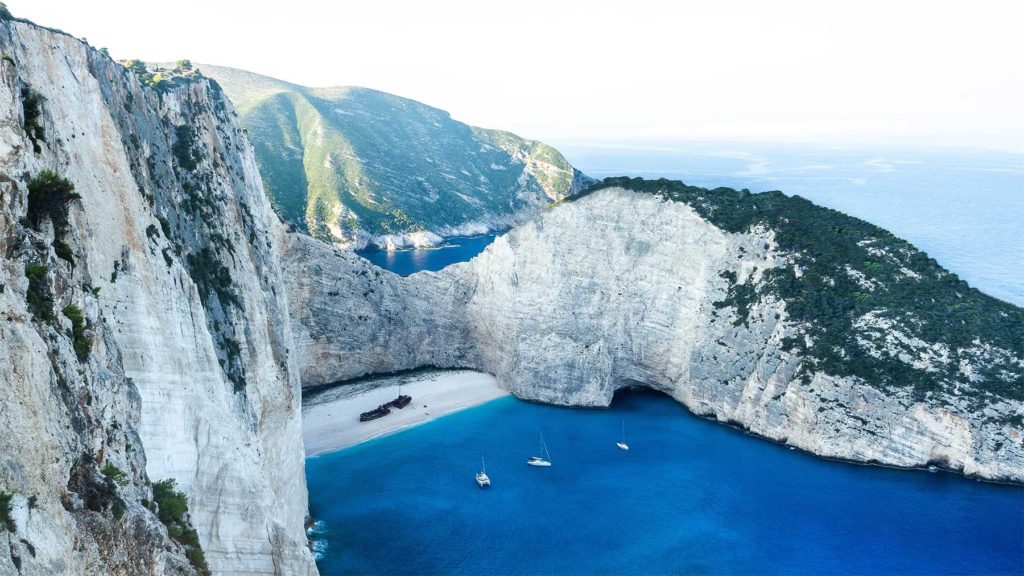
The culture and way of life in Greece
Greek culture is deeply rooted in history, mythology, and a strong sense of community. The country’s rich heritage and traditions shape the way of life in Greece, creating a unique cultural experience for both locals and visitors.
Hospitality is a cornerstone of Greek culture, known as “philoxenia.” Greeks are renowned for their warm and welcoming nature, often going out of their way to make guests feel at home. Sharing meals, lively conversations, and heartfelt connections are integral to Greek hospitality.
Family plays a central role in Greek society. Strong family bonds, respect for elders, and close-knit relationships are deeply valued. Greeks often gather for large family meals, celebrations, and religious festivities, fostering a sense of unity and togetherness.
Greek cuisine is a significant part of the cultural identity. Traditional dishes like moussaka, souvlaki, and spanakopita showcase the flavors of the Mediterranean. Greeks take pride in using fresh, locally sourced ingredients and the art of slow cooking. Sharing meals with family and friends is not just about sustenance but also about enjoying good food, lively conversation, and a relaxed atmosphere.
Religion also plays a vital role in Greek culture, with the majority of Greeks belonging to the Greek Orthodox Church. Religious festivals, such as Easter and Saints’ days, are celebrated with great enthusiasm, combining solemn traditions with joyful feasts and music.
Music and dance are intrinsic to Greek culture. Traditional music, characterized by the iconic sound of bouzouki, often accompanies lively dance forms like the syrtaki and the zeibekiko. Festivals and local celebrations provide opportunities to witness traditional dances and music performances that reflect Greece’s regional diversity.
Greeks take pride in their ancient heritage and history, which is evident in the preservation of archaeological sites and museums throughout the country. Ancient ruins, such as the Acropolis in Athens and the Palace of Knossos in Crete, provide a glimpse into the glorious past of ancient Greece and its impact on Western civilization.
The Greek way of life is also influenced by the Mediterranean climate and geography, with an emphasis on outdoor living. Cafés spill out onto bustling squares, people enjoy leisurely walks along the seaside promenades, and outdoor activities like swimming, sailing, and hiking are popular.

Top Must See in Greece
Greece is a treasure trove of historical and natural wonders, offering a multitude of must-see destinations. Here are ten top attractions that should be on every traveler’s list when visiting Greece:
Athens and the Acropolis: Explore the ancient capital and marvel at the iconic Acropolis, home to the magnificent Parthenon and other archaeological treasures.
Santorini: Experience the captivating beauty of this volcanic island with its white-washed buildings, stunning sunsets, and breathtaking views of the caldera.
Delphi: Journey to the ancient sanctuary of Delphi, perched on the slopes of Mount Parnassus, and explore the mystical ruins of the Oracle of Apollo.
Meteora: Witness the awe-inspiring monasteries of Meteora, perched dramatically atop towering rock formations, creating a truly unique and spiritual landscape.
Crete and the Palace of Knossos: Uncover the remnants of the Minoan civilization at the Palace of Knossos, one of the most important archaeological sites in Greece.
Olympia: Step back in time at the birthplace of the Olympic Games, where you can explore the ruins and visit the site’s museum to learn about the ancient sporting tradition.
Rhodes Old Town: Wander through the medieval streets of Rhodes’ Old Town, a UNESCO World Heritage site, and discover its ancient fortifications and charming blend of Byzantine, Ottoman, and Italian influences.
Mycenae: Delve into the Bronze Age at Mycenae, an ancient fortified city rich in myth and history, where you can explore the famous Lion Gate and the Tomb of Agamemnon.
Corfu Old Town: Lose yourself in the narrow streets and Venetian architecture of Corfu’s Old Town, a UNESCO World Heritage site, and soak up the vibrant atmosphere of this historic gem.
Samaria Gorge: Hike through the stunning Samaria Gorge in Crete, one of Europe’s longest canyons, and immerse yourself in its natural beauty, diverse flora, and fauna.
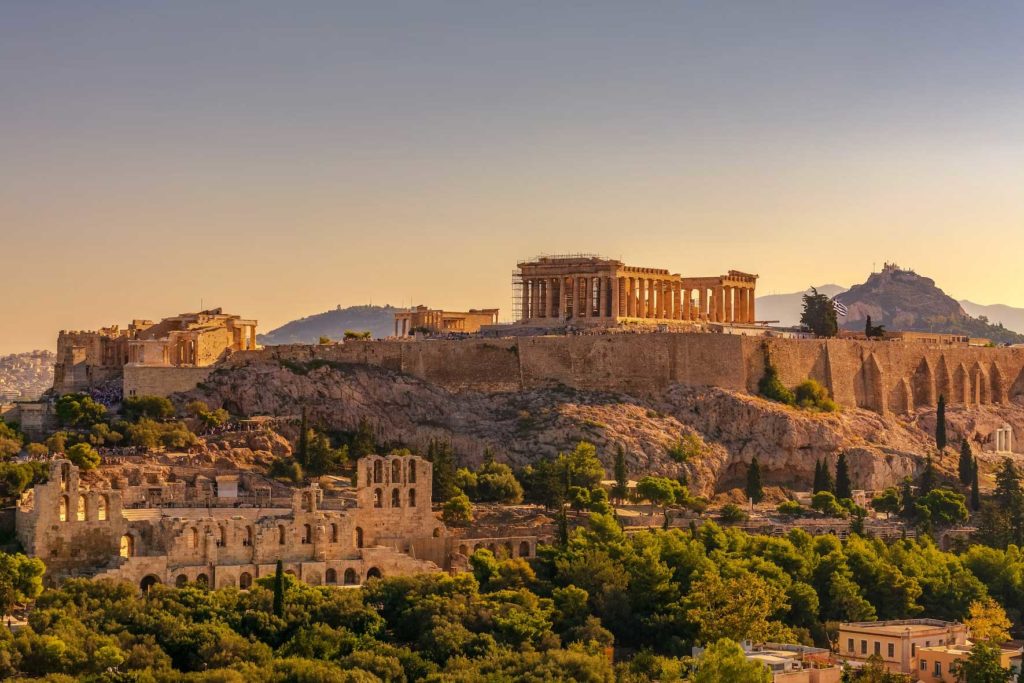
Must do experiences in Greece
Greece offers a wide array of experiences that are bound to create lasting memories for travelers. Here are some must-do activities and experiences to consider when exploring Greece:
Explore Athens’ Ancient History: Immerse yourself in the rich history of Athens by visiting iconic ancient sites such as the Acropolis, the Parthenon, and the Ancient Agora. Discover the birthplace of democracy and marvel at the architectural wonders that have stood the test of time.
Island Hopping: Embark on a journey through the Greek islands and experience the diverse beauty each one has to offer. Whether it’s the romantic sunsets of Santorini, the vibrant nightlife of Mykonos, or the unspoiled landscapes of Crete, island hopping allows you to discover the unique character of each destination.
Enjoy Greek Cuisine: Indulge in the delectable flavors of Greek cuisine, known for its fresh ingredients and Mediterranean influences. Sample traditional dishes such as moussaka, souvlaki, and Greek salads, accompanied by local wines and spirits like ouzo or raki. Don’t forget to savor the famous Greek yogurt and honey for breakfast.
Discover Delphi’s Oracle: Visit the ancient sanctuary of Delphi and explore the ruins of the Temple of Apollo. Discover the mystical Oracle, where people sought prophecies and guidance from the gods. Delphi’s scenic location on the slopes of Mount Parnassus adds to its allure.
Experience a Greek Festival: Participate in traditional Greek festivals that showcase the country’s vibrant culture and customs. Dance to the lively rhythms of traditional music, witness traditional costume displays, and enjoy local delicacies. Easter celebrations, village panigiri (religious feast days), and cultural festivals are among the many vibrant events to experience.
Relax on Beautiful Beaches: Greece boasts an abundance of stunning beaches along its coastlines and islands. From the renowned beaches of Mykonos and Crete to hidden gems like Balos Beach or Navagio Beach (Shipwreck Beach) in Zakynthos, find your slice of paradise and unwind in the crystal-clear waters and golden sands.
Trek the Samaria Gorge: Lace up your hiking boots and venture into the Samaria Gorge in Crete, one of Europe’s most spectacular natural wonders. Traverse the rugged terrain, admire towering cliffs, and encounter diverse flora and fauna along the way, culminating in a refreshing swim at the Libyan Sea.
Sunset Sailing: Take to the seas and embark on a sunset sailing excursion around the Greek islands. Witness the mesmerizing colors of the sky as the sun sets over the Aegean Sea, creating a picture-perfect backdrop for a memorable experience.
Attend an Ancient Theater Performance: Catch a performance at one of Greece’s ancient theaters, such as the Odeon of Herodes Atticus in Athens or the Theater of Epidaurus. Experience the magic of live theater in historic settings and appreciate the acoustics and grandeur of these ancient venues.
Engage in Water Sports: Take advantage of Greece’s stunning coastlines and indulge in thrilling water sports activities. Try your hand at windsurfing, snorkeling, scuba diving, or even paddleboarding, enjoying the crystal-clear waters and the exhilaration of being in the Mediterranean.

Top 10 iconic and most luxurious hotels of Greece
Amanzoe (Peloponnese): Nestled in the enchanting landscape of the Peloponnese region, Amanzoe is a haven of luxury and tranquility. This exclusive resort boasts breathtaking views of the Aegean Sea and the rolling hills of Greece. The architectural design seamlessly blends ancient Greek aesthetics with contemporary elegance, creating an atmosphere of timeless beauty. Amanzoe’s private villas and pavilions offer the utmost privacy and comfort, each with its own plunge pool and expansive terrace. The resort’s exceptional service, gourmet dining options, and holistic spa treatments ensure a truly indulgent experience.
Santa Marina Resort & Villas (Mykonos): Located on the renowned island of Mykonos, Santa Marina Resort & Villas is a symbol of opulence and sophistication. Set on a private peninsula overlooking the sparkling Aegean Sea, this luxurious retreat offers lavish accommodations, including elegant rooms, suites, and spacious villas. The resort’s private beach, complete with sunbeds and beachfront dining, provides the perfect spot to soak up the sun and enjoy the vibrant atmosphere. Santa Marina’s world-class amenities, including a spa, multiple dining options, and a vibrant poolside bar, make it a top choice for discerning travelers seeking the ultimate Greek island escape.
Bill & Coo Suites and Lounge (Mykonos): Situated in the heart of Mykonos Town, Bill & Coo Suites and Lounge is a boutique hotel renowned for its unrivaled service and intimate atmosphere. The hotel’s chic and minimalist design exudes a sense of modern elegance, while its infinity pool offers panoramic views of the Aegean Sea. Each suite is exquisitely appointed with luxurious amenities, and the hotel’s renowned restaurant serves innovative culinary creations inspired by local flavors. Bill & Coo’s personalized attention to detail and serene ambiance create a haven of tranquility amidst the lively energy of Mykonos.
Mystique, a Luxury Collection Hotel (Santorini): Perched on the cliffs of Oia, Santorini, Mystique is an iconic hotel that showcases the stunning beauty of the island’s volcanic landscape. The hotel’s whitewashed cave-like suites and villas offer uninterrupted views of the Caldera and the azure waters of the Aegean Sea. Mystique’s attention to detail is evident in every aspect, from its handcrafted furnishings to its personalized services. Guests can indulge in exceptional dining experiences, relax in the infinity-edge pool, or rejuvenate at the Asian Spa, all while being captivated by Santorini’s magical sunset vistas.
Eagles Palace (Halkidiki): Nestled in a secluded bay in the Halkidiki region, Eagles Palace is a luxurious beachfront resort surrounded by lush greenery and turquoise waters. The hotel’s elegant rooms, suites, and private bungalows offer modern comfort and breathtaking sea or garden views. Guests can indulge in a range of activities, including water sports, tennis, and golf, or simply unwind on the pristine private beach. Eagles Palace is also renowned for its exquisite cuisine, with several restaurants serving a variety of Mediterranean and international dishes, ensuring a delightful culinary journey.
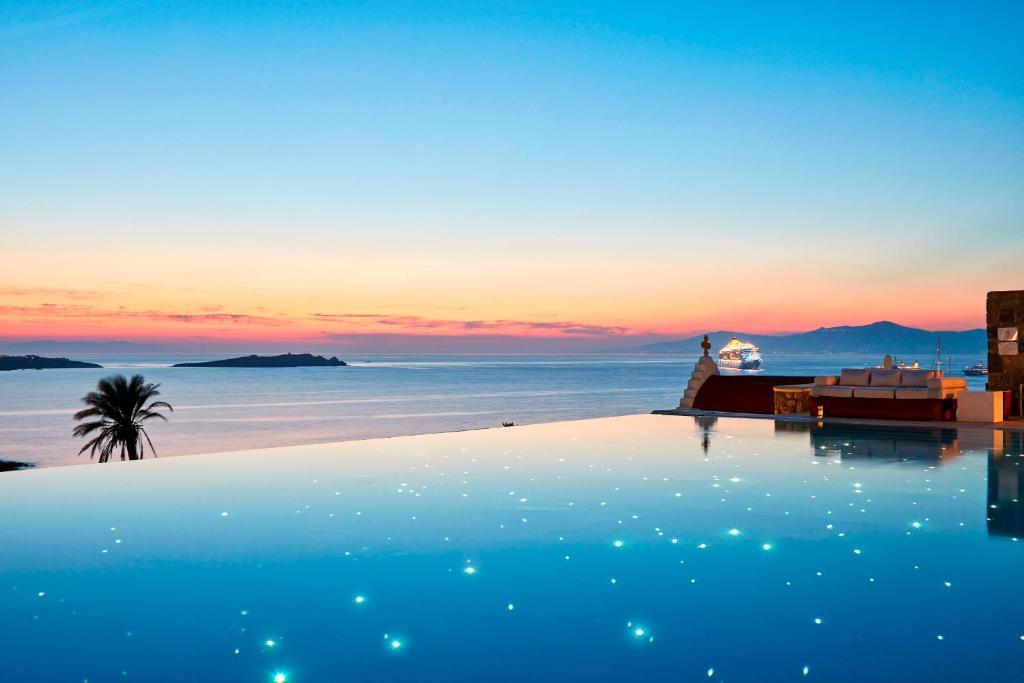
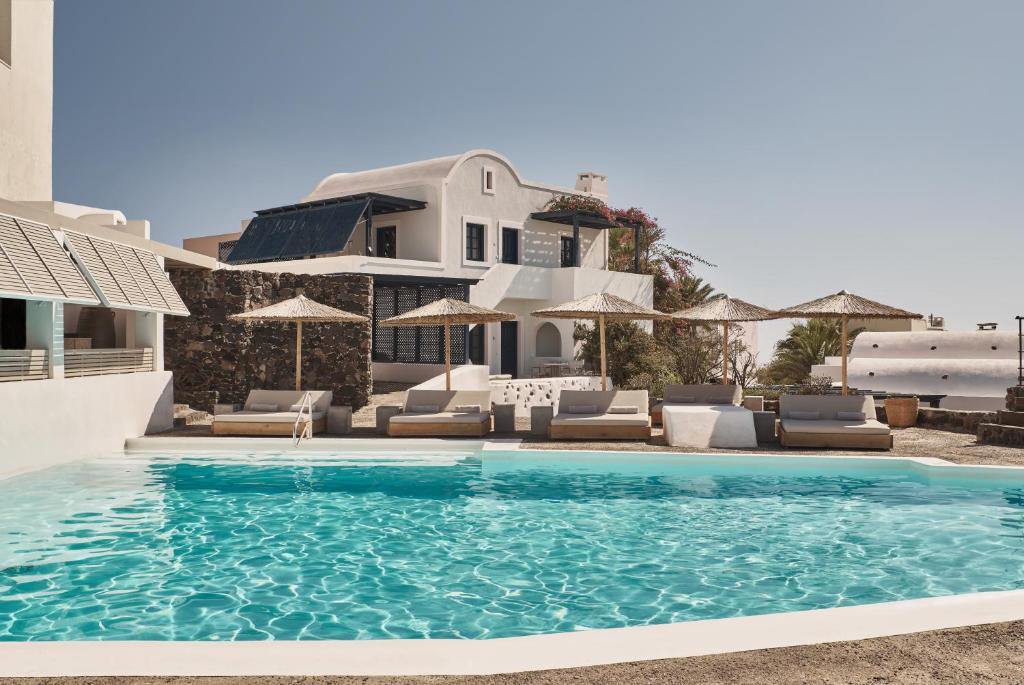
Costa Navarino, The Romanos (Peloponnese): Situated in the beautiful region of Messinia, Costa Navarino is a luxury resort complex that combines sustainable design with unrivaled hospitality. The Romanos, one of its two premium hotels, offers lavish accommodations with private terraces or balconies overlooking the Ionian Sea or the resort’s lush gardens. The resort’s exceptional facilities include an 18-hole championship golf course, a serene spa, and a variety of dining options showcasing local and international flavors. With its commitment to sustainability and preservation of the natural environment, it is a great place to stay.
Grace Santorini (Santorini): Perched high above the iconic Caldera cliffs in Santorini, Grace Santorini is a boutique hotel that epitomizes luxury and elegance. Its stunning infinity pool seems to blend seamlessly with the endless expanse of the Aegean Sea, creating a breathtaking backdrop. The hotel’s suites and villas feature minimalist white décor, private plunge pools, and panoramic views of the volcano and sunset. With a Michelin-starred restaurant offering exceptional Mediterranean cuisine, attentive service, and a serene spa, Grace Santorini ensures an unforgettable and indulgent experience on this romantic island.
Blue Palace, a Luxury Collection Resort & Spa (Crete): Situated on the stunning northeast coast of Crete, Blue Palace is a luxurious retreat surrounded by crystal-clear waters and lush gardens. The resort’s elegant accommodations, including private villas with pools and suites with sea views, offer a perfect blend of comfort and style. Guests can indulge in a variety of experiences, from rejuvenating treatments at the award-winning spa to exploring the island’s rich cultural heritage through private excursions. With its exquisite restaurants serving gourmet cuisine, a private beach, and awe-inspiring views of the Spinalonga fortress, Blue Palace promises an unforgettable escape.
Domes Noruz Chania, Autograph Collection (Crete): Located in the captivating city of Chania, Domes Noruz is an adult-only resort that combines contemporary design with a laid-back beachfront setting. The resort’s sleek suites and villas feature private plunge pools and modern amenities, offering a stylish and comfortable retreat. Domes Noruz focuses on personalized experiences, offering tailor-made itineraries, private beach cabanas, and an exclusive adults-only beach club. With its vibrant atmosphere, exquisite dining options, and a rooftop pool providing panoramic views of the Aegean Sea, this hotel is an ideal choice for sophisticated travelers seeking an urban-chic beach getaway.
Vedema, a Luxury Collection Resort (Santorini): Situated in the traditional village of Megalochori in Santorini, Vedema captures the essence of Greek island living with its charming whitewashed buildings and winding cobblestone pathways. The resort’s spacious suites and villas, adorned with local artwork and antiques, offer a harmonious blend of tradition and luxury. Guests can immerse themselves in Santorini’s rich heritage by exploring the nearby vineyards or enjoying a private wine tasting experience. The resort also features a serene spa, a variety of dining venues serving Mediterranean cuisine, and a unique underground cave-style swimming pool, making Vedema a truly special retreat on this iconic island.
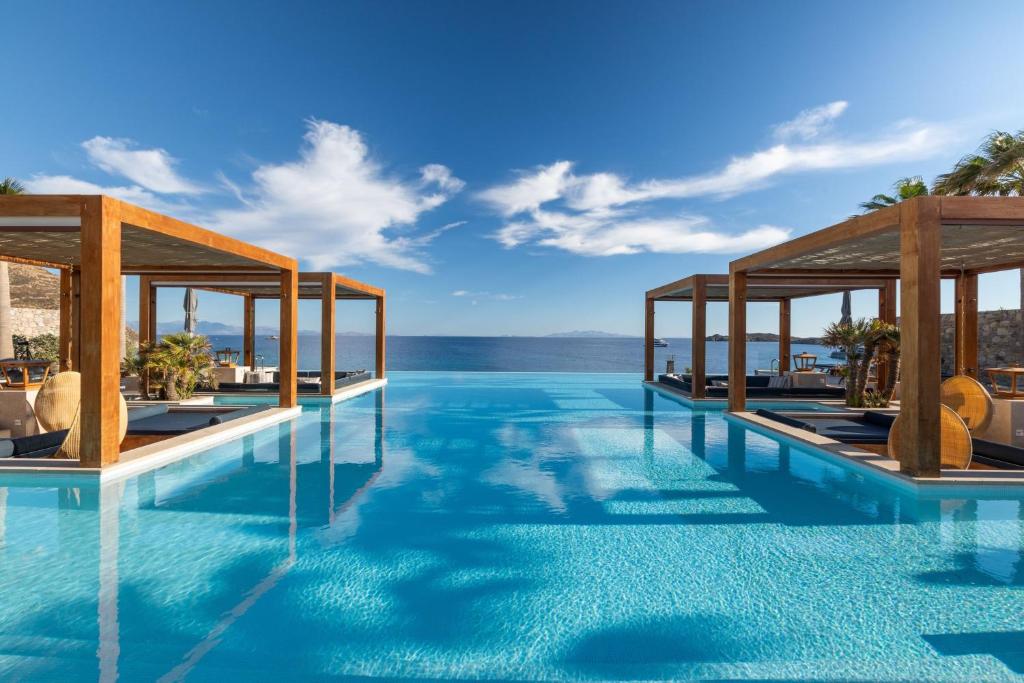
Food and drinks
Food specialities of Greece you should try
Welcome to a culinary journey through Greece, a country renowned for its rich gastronomic heritage and vibrant flavors. Greek cuisine is a tapestry of Mediterranean influences, featuring fresh ingredients, aromatic herbs, and traditional cooking techniques passed down through generations. Let’s explore some of the food specialties that make Greece a true paradise for food lovers.
One cannot mention Greek cuisine without highlighting the beloved Greek salad, or “Horiatiki.” This refreshing dish combines ripe tomatoes, cucumbers, onions, peppers, Kalamata olives, and creamy feta cheese, all drizzled with extra virgin olive oil and sprinkled with aromatic herbs like oregano. It’s a true celebration of the Mediterranean flavors and a perfect starter to any Greek meal.
Spanakopita is another iconic Greek dish that will tantalize your taste buds. This savory pastry features layers of delicate phyllo dough filled with a delectable mixture of spinach, feta cheese, onions, and herbs. Baked to golden perfection, each bite of Spanakopita offers a delightful combination of flaky crust and flavorful, cheesy filling.
Moussaka is a must-try dish that showcases the heartiness of Greek cuisine. This layered casserole typically includes sliced eggplant, minced meat (often lamb), tomatoes, onions, and a creamy béchamel sauce. Seasoned with aromatic herbs and baked until golden and bubbly, Moussaka is a comfort food favorite that exemplifies Greek home cooking.

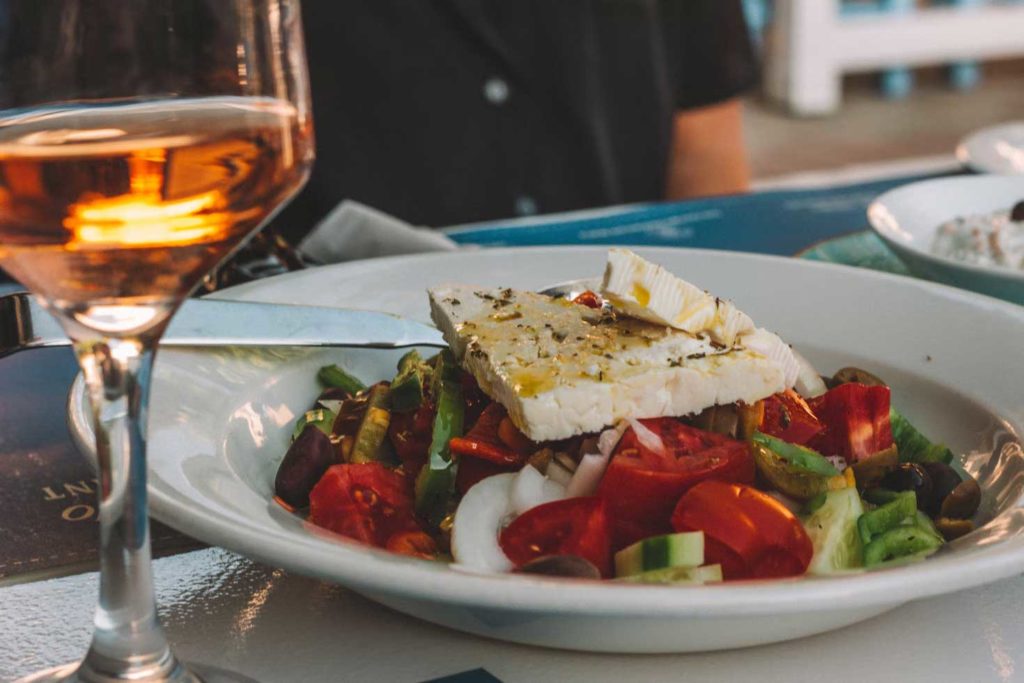
For seafood enthusiasts, Greece offers a treasure trove of delights. One such delicacy is grilled octopus, or “Htapodi sti skára.” Tenderized and marinated in olive oil, lemon juice, and herbs, the octopus is then charred to perfection on the grill. The result is a smoky and succulent dish that perfectly captures the flavors of the sea.
No exploration of Greek cuisine would be complete without mentioning the world-famous Greek yogurt. Known for its rich and creamy texture, Greek yogurt is enjoyed in various forms. Whether served with a drizzle of honey and sprinkling of nuts for breakfast or used as a tangy and velvety base for tzatziki, a traditional sauce made with cucumber, garlic, and dill, Greek yogurt adds a luxurious touch to many dishes.
Last but certainly not least, we cannot forget the sweet indulgences that Greece has to offer. Baklava is a beloved pastry made of layers of flaky phyllo dough filled with a mixture of nuts, spices, and sweet syrup. The combination of crisp layers and sticky sweetness creates a truly irresistible treat.
Loukoumades are another popular Greek dessert. These fluffy deep-fried dough balls are crispy on the outside and soft on the inside. They are traditionally drizzled with honey, sprinkled with cinnamon, and garnished with crushed walnuts, creating a heavenly combination of textures and flavors.

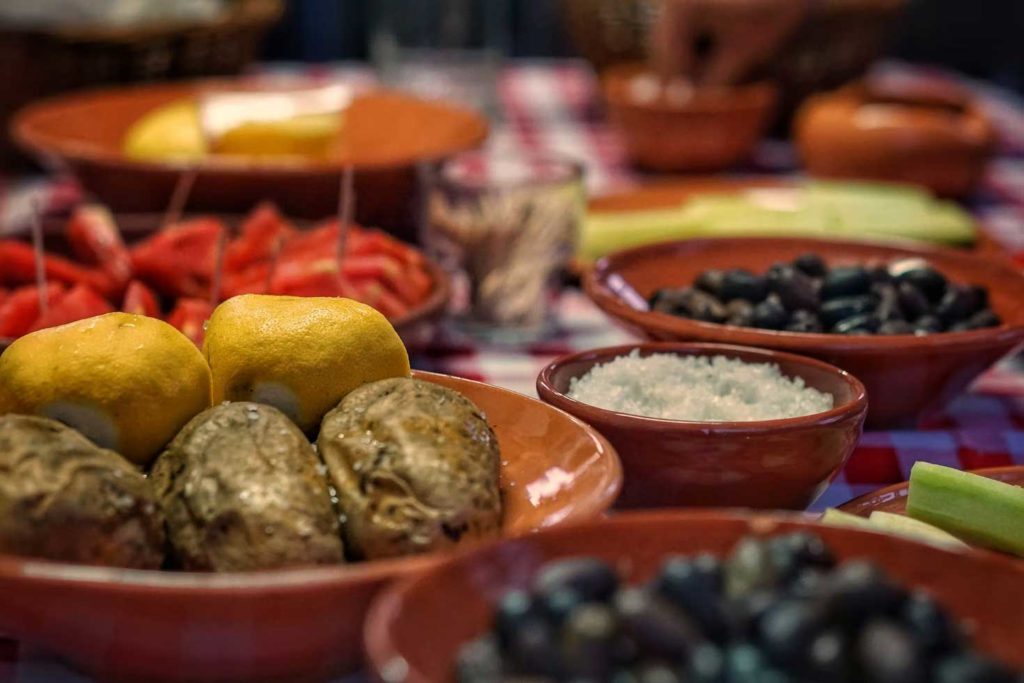

Drinks of Greece
Greece offers a diverse selection of beverages, ranging from classic favorites to unique regional specialties. Join us as we explore the rich and refreshing drinks that make Greece a true haven for beverage enthusiasts.
Let’s start with Ouzo, Greece’s most famous traditional spirit. Distilled from grapes and flavored with anise, Ouzo is a clear, strong liquor known for its distinct licorice-like taste. Often enjoyed as an aperitif or accompanied by meze (small plates of appetizers), Ouzo is best savored slowly, preferably mixed with water, which transforms the transparent liquid into a milky-white drink called “Ouzo effect.” Its vibrant flavor and the ritual of sipping it with friends make Ouzo an integral part of Greek social culture.
Moving on to wine, Greece boasts a long and illustrious history of winemaking dating back thousands of years. Greek wines showcase a remarkable diversity of indigenous grape varieties and terroirs. From the crisp and citrusy Assyrtiko of Santorini to the aromatic and floral Moschofilero of the Peloponnese, Greek wines offer a unique tasting experience. The red wines, such as Agiorgitiko from Nemea or Xinomavro from Naoussa, reveal complex flavors and velvety textures. Exploring the vineyards and wineries across Greece is a delightful way to uncover the country’s rich wine culture.
Another popular Greek drink is Frappé, a chilled coffee beverage that has become an iconic symbol of Greek summers. Created by accident in the 1950s, Frappé is made by vigorously shaking instant coffee, sugar, and water, resulting in a frothy and refreshing iced coffee. It can be enjoyed plain or customized with milk and various flavors, offering a cooling and energizing pick-me-up on warm Greek afternoons.
Greece is also known for its aromatic herbal teas. One such tea is mountain tea, or “Tsai tou Vounou.” Made from dried leaves and flowers of the Sideritis plant, this herbal infusion has a mild, earthy flavor and is believed to have numerous health benefits. Served hot or cold, mountain tea is often enjoyed for its soothing properties and is a popular choice throughout Greece.
Last but not least, we must mention Greek lemonade, or “Lemonada.” Made with freshly squeezed lemons, water, and a touch of sugar, this thirst-quenching beverage is a staple during the hot summer months. The zesty and tangy flavors of Greek lemonade provide a delightful balance between sweetness and acidity, making it a perfect accompaniment to any outdoor gathering or beach day.
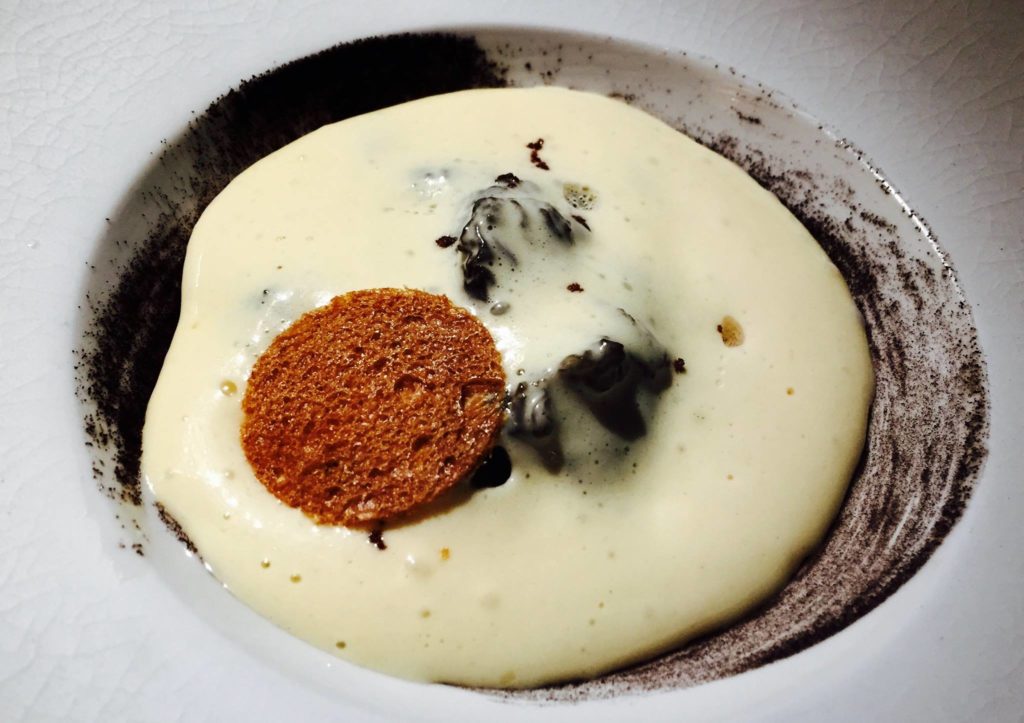
Top 10 restaurants in Greece
Spondi (Athens): Located in the heart of Athens, Spondi is a Michelin-starred restaurant renowned for its refined culinary creations. Chef Angelos Lantos presents a menu that beautifully combines French and Mediterranean influences with Greek ingredients. From delicate seafood dishes to expertly cooked meats, each plate at Spondi is a work of art. The restaurant’s elegant setting, impeccable service, and extensive wine list ensure a memorable dining experience.
Funky Gourmet (Athens): Helmed by chefs Georgianna Hiliadaki and Nikos Roussos, Funky Gourmet offers a unique dining experience in Athens. This two-Michelin-starred restaurant showcases avant-garde cuisine with creative presentations and playful flavors. The menu surprises guests with unexpected combinations and molecular gastronomy techniques, resulting in a feast for the senses. Funky Gourmet’s contemporary design and innovative dishes make it a must-visit for culinary adventurers.
Kiku (Athens): Located in the Athenian Riviera, Kiku presents exquisite Japanese cuisine with a Greek twist. Chef Argiro Barbarigou combines her Greek heritage with her love for Japanese flavors, resulting in a fusion of tastes that harmonize perfectly. From fresh sushi and sashimi to creative seafood dishes, Kiku’s menu offers a delightful journey through the flavors of Japan. The restaurant’s elegant ambiance and breathtaking sea views contribute to its allure.
Selene (Santorini): Nestled in the charming village of Pyrgos, Selene is a renowned gastronomic destination on the island of Santorini. Chef-owner Yiorgos Hatziyannakis celebrates the island’s local produce and traditional recipes with a contemporary twist. Selene’s menu features dishes that highlight the unique flavors of Santorini, such as fava bean puree, cherry tomato salad, and succulent seafood. The restaurant’s warm hospitality and picturesque setting overlooking the Caldera make it an unforgettable dining experience.
Matsuhisa Mykonos (Mykonos): Situated in the glamorous island of Mykonos, Matsuhisa brings the culinary genius of world-renowned chef Nobu Matsuhisa to Greece. This upscale restaurant combines Japanese and Peruvian flavors, creating a fusion known as “Nobu-style” cuisine. From signature dishes like black cod miso to tantalizing sushi rolls, Matsuhisa Mykonos offers a dining experience that is both sophisticated and vibrant. The stunning beachfront location adds to its allure, making it a favorite among discerning travelers.


Varoulko Seaside (Piraeus, Athens): Located by the sea in Piraeus, Varoulko Seaside is a Michelin-starred seafood restaurant helmed by chef Lefteris Lazarou. Known for his mastery of seafood, Lazarou creates dishes that showcase the freshest catch of the day with innovative culinary techniques. From grilled octopus to sea bass carpaccio, each plate at Varoulko Seaside is a celebration of the flavors of the Mediterranean. The restaurant’s scenic waterfront location and sleek design contribute to its appeal.
Aleria (Athens): Aleria, led by chef Gikas Xenakis, is a modern Greek restaurant situated in the heart of Athens. Combining traditional recipes with a contemporary touch, Aleria presents dishes that highlight the best of Greek cuisine. From braised lamb shank to sea bass fillet, each dish reflects Xenakis’ commitment to using locally sourced, seasonal ingredients. The restaurant’s inviting atmosphere and warm hospitality create a welcoming ambiance for diners.
Argo (Santorini): Perched on the cliffs of Santorini’s capital, Fira, Argo is a beloved restaurant known for its panoramic views and delectable Greek cuisine. With a menu curated by Chef Harris Kavalieratos, Argo offers a range of traditional dishes prepared with a modern twist. Guests can savor flavorful classics like moussaka, grilled lamb chops, and fresh seafood, all while taking in the breathtaking vistas of the Caldera and the Aegean Sea. The restaurant’s romantic ambiance, attentive service, and memorable culinary creations make it a top choice for a memorable dining experience in Santorini.
Avli Tou Thodori (Mykonos): Situated on the popular beach of Platis Gialos in Mykonos, Avli Tou Thodori is renowned for its exceptional seafood and beachfront dining experience. With a focus on using locally sourced ingredients, Chef Thanassis Tziovanis crafts dishes that showcase the flavors of the Aegean Sea. From grilled fish and seafood platters to traditional Greek delicacies, every bite at Avli Tou Thodori transports diners to a culinary paradise. The restaurant’s relaxed atmosphere, panoramic sea views, and proximity to the beach make it a beloved spot for both locals and visitors.
To Palio Hamam (Thessaloniki): Housed in a converted 15th-century Turkish bath, To Palio Hamam is a unique dining destination in Thessaloniki. Chef George Dimopoulos offers a menu that blends Greek and Ottoman influences, creating a fusion of flavors and culinary traditions. From savory meat dishes to aromatic stews and flavorful meze, To Palio Hamam captures the essence of both cultures. The restaurant’s historic setting, adorned with stunning Byzantine architecture, adds to its allure, creating an unforgettable dining experience in Thessaloniki.
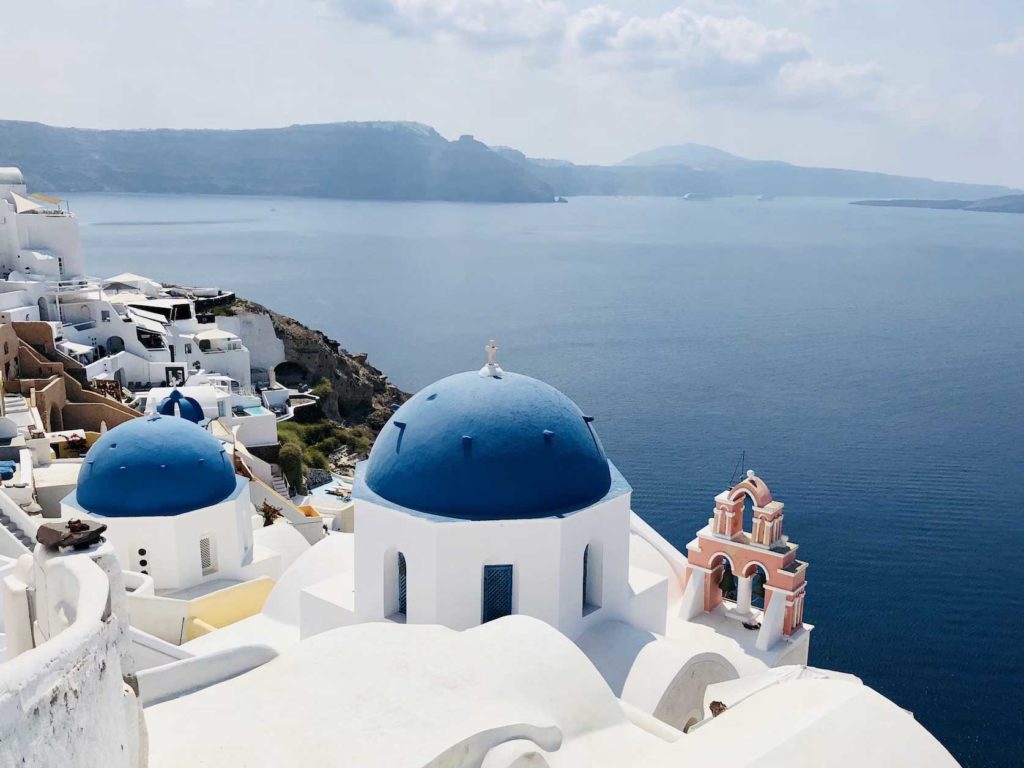
Shopping, taxes and tipping in Greece
When shopping in Greece, it’s important to understand the taxation, service charges, and tipping customs to ensure a smooth and appropriate transaction. Here’s an overview of the relevant aspects:
Value Added Tax (VAT): Greece applies a Value Added Tax, known as VAT or “FPA” in Greek, to most goods and services. The standard VAT rate is currently 24%. However, certain items like essential food items, medications, and hotel accommodations may have a reduced VAT rate of 13% or 6%. When shopping, the final price displayed on the item or at the checkout counter already includes VAT.
Service Charges: In Greece, it is common for restaurants and cafes to include a service charge, often referred to as a “cover charge” or “service fee,” in the bill. This charge typically ranges from 5% to 10% and is meant to cover the cost of table service. The service charge should be clearly indicated on the menu or the bill. It is important to note that this service charge is not a tip, and additional gratuity may still be expected.
Tipping: While not mandatory, tipping is appreciated in Greece and is considered a gesture of satisfaction for good service. When dining in restaurants or cafes, it is customary to leave a gratuity for the waitstaff. A typical tip ranges from 5% to 10% of the total bill, depending on the level of service and satisfaction. It is customary to hand the tip directly to the server or leave it on the table before leaving. In some cases, particularly in high-end establishments or for large groups, a service charge may be automatically added, but an additional tip may still be given for exceptional service.
Payment Methods: When paying for purchases or meals in Greece, cash is widely accepted, and credit or debit cards are also commonly used. Major international credit cards like Visa, Mastercard, and American Express are generally accepted in most establishments. However, it’s advisable to carry some cash, especially for smaller establishments or when visiting more remote areas where card payment options may be limited.
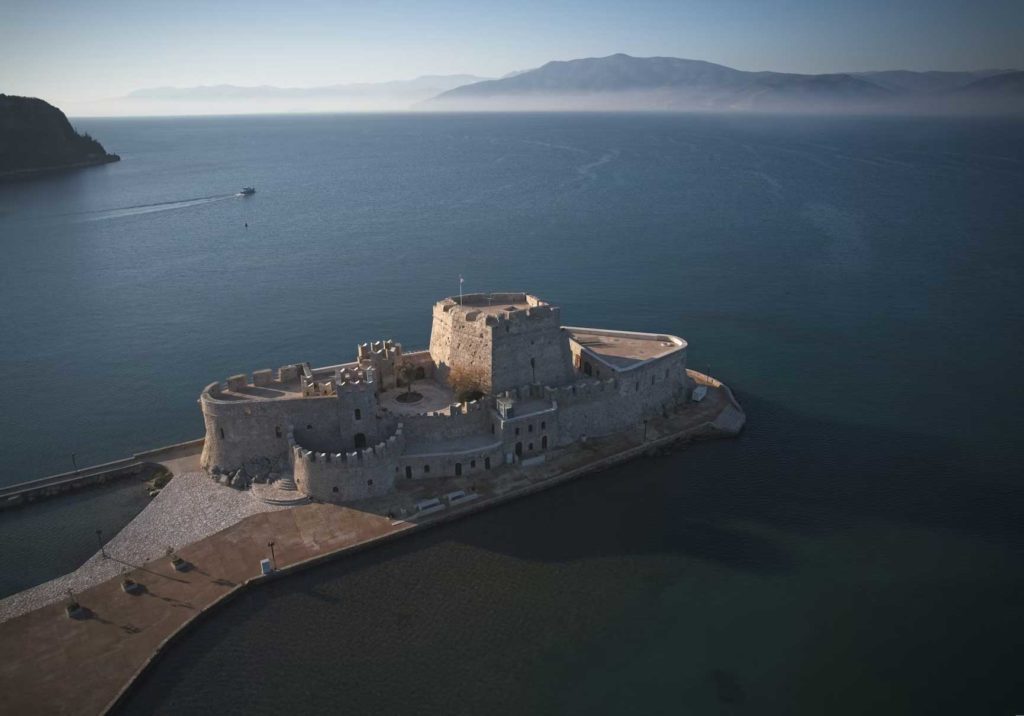
What not to do in Greece, things to avoid
To ensure a pleasant and respectful experience during your visit, it’s important to be aware of certain cultural norms and customs. Here are some things to avoid or be mindful of while in Greece:
Disrespecting religious sites: Greece is home to numerous churches, monasteries, and archaeological sites that hold great religious and historical significance. It is essential to dress modestly and behave respectfully when visiting these places. Avoid wearing revealing clothing, touching artifacts, or engaging in loud or disruptive behavior that may disrespect the sanctity of these sites.
Ignoring smoking regulations: Greece has strict smoking regulations in public areas, including restaurants, bars, and public transportation. Smoking is generally not allowed indoors, and there are designated smoking areas in outdoor spaces. Respect these regulations and be mindful of others’ health and comfort by adhering to designated smoking zones.
Overt displays of affection: While Greeks are generally warm and affectionate, it is important to be mindful of cultural norms regarding public displays of affection. Excessive or overt displays of affection in public places, such as kissing or hugging, may be considered inappropriate or uncomfortable for some people. It is advisable to be aware of your surroundings and show consideration for local customs.
Being unaware of “siesta” hours: The tradition of the siesta, a midday break or rest period, is still observed in many parts of Greece. During siesta hours, typically in the early afternoon, some shops, businesses, and services may close or have limited operating hours. Be prepared and plan your activities accordingly to avoid disappointment or inconvenience.
Not greeting properly: Greeks value politeness and proper greetings. When entering a shop, restaurant, or someone’s home, it is customary to greet the staff or hosts with a friendly “kalimera” (good morning), “kalispera” (good evening), or “yasou” (hello). Taking a moment to acknowledge and greet others is considered polite and shows respect for Greek social customs.
Drinking tap water: While tap water in Greece is generally safe to drink, it is advisable to opt for bottled water, especially in remote areas or on islands where water quality may vary. Bottled water is widely available and inexpensive, and it ensures that you stay hydrated without any concerns.
Engaging in excessive haggling: Haggling or negotiating prices is not common practice in most retail establishments in Greece. While it may be acceptable at some local markets or for specific items like souvenirs, it is generally best to respect the displayed prices in stores, restaurants, and other establishments.
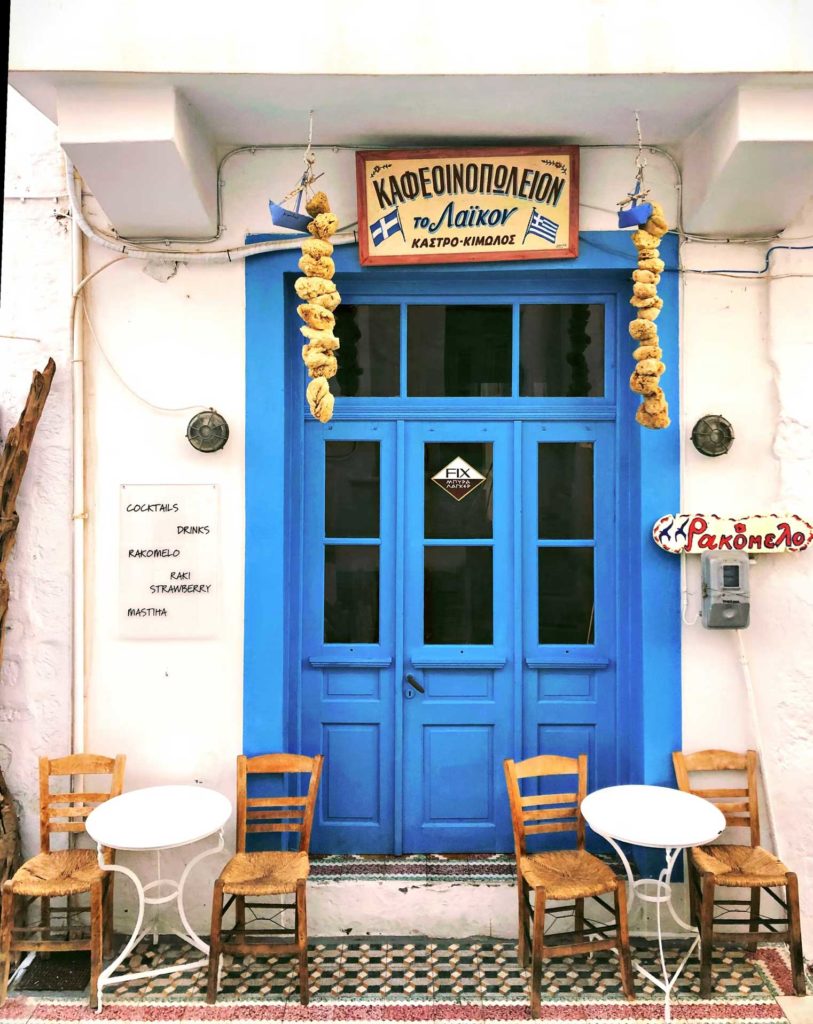
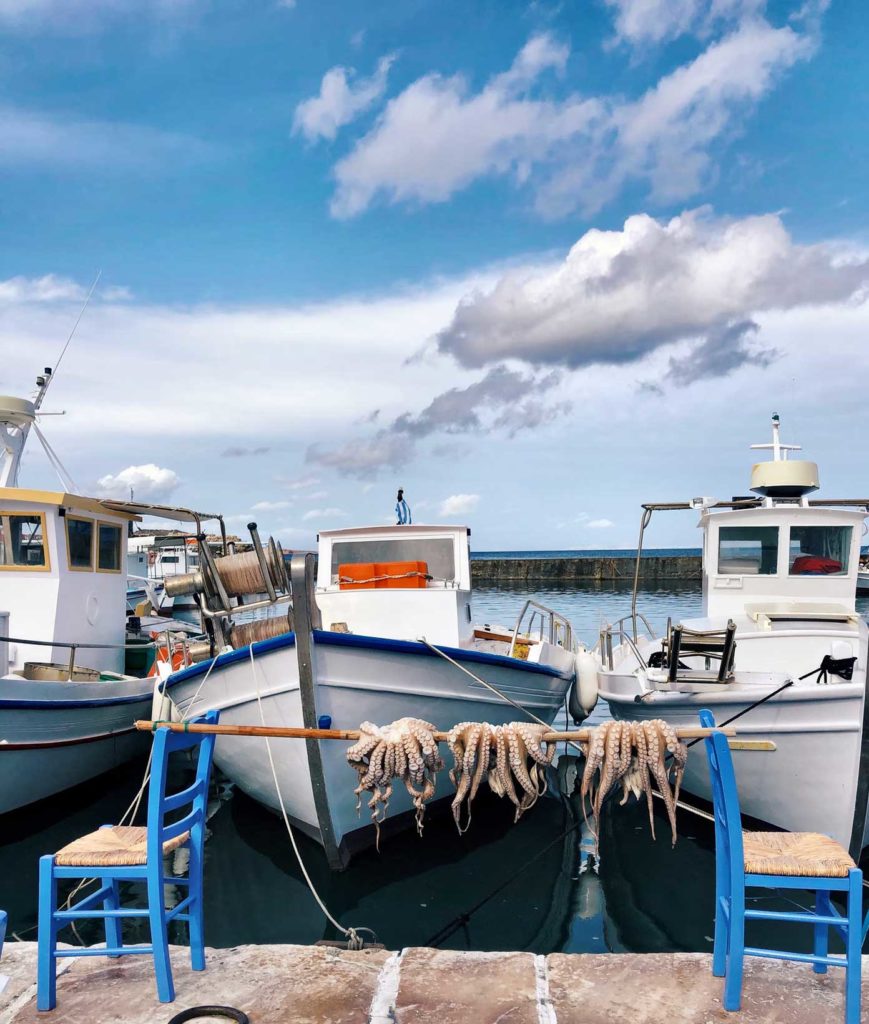
Safety and security in Greece
Like any travel destination, it is essential to prioritize safety and security during your visit. Here are some important considerations to ensure a safe and enjoyable experience in Greece:
General Safety Precautions: Greece is a relatively safe country, but it’s always wise to take basic safety precautions. Be aware of your surroundings, especially in crowded areas, tourist sites, and public transportation. Keep your personal belongings secure and avoid displaying valuable items in public. It is also advisable to have a copy of your important travel documents, such as passports or identification, in case of loss or theft.
Transportation Safety: Greece has a well-developed transportation system, including buses, taxis, ferries, and the metro. When using public transportation, be cautious of your personal belongings, especially in crowded areas. Use reputable taxi services or book taxis through official apps to ensure your safety. If renting a car, familiarize yourself with local traffic laws and be mindful of road conditions, especially in rural or mountainous areas.
Water Safety: Greece is famous for its stunning beaches and crystal-clear waters. While enjoying the sea, it’s important to adhere to water safety guidelines. Pay attention to warning flags indicating sea conditions and currents. Swim in designated areas with lifeguards present and follow their instructions. If you’re not a strong swimmer, consider using a life jacket. It’s also advisable to stay hydrated, apply sunscreen regularly, and drink responsibly to avoid accidents or health issues.
Natural Hazards: Greece is prone to occasional natural hazards, such as forest fires, earthquakes, and extreme weather conditions. Stay informed about local weather forecasts, follow any instructions from local authorities, and be prepared in case of emergencies. If hiking or exploring nature reserves, inform someone of your plans and carry essential supplies like water, snacks, and appropriate footwear.
Scams and Tourist Targeting: While Greece is generally safe for tourists, it’s important to be cautious of scams or tourist-targeted thefts. Be wary of individuals who approach you with unsolicited offers or requests for money. Avoid carrying large amounts of cash and keep your valuables secure. Use reputable tour operators and be cautious when sharing personal information or using public Wi-Fi networks.

Final advice for travellers
Electricity and Charging: Greece operates on 230V electricity with Type C or Type F outlets. If your electrical devices use a different voltage or plug type, you may need a travel adapter or voltage converter. It’s also a good idea to carry a portable charger for your devices, especially when exploring for long periods without access to electrical outlets.
Cash and Card Payments: Greece is predominantly a cash-based society, especially for smaller establishments, local markets, and taxis. While many businesses accept major credit cards, it’s advisable to carry some cash for smaller transactions or places that may not accept cards. ATMs are widely available in cities and tourist areas, allowing you to withdraw cash with your debit or credit card.
Cost of Living: The cost of living in Greece can vary depending on the location and the time of year. Major tourist destinations and islands tend to have higher prices compared to smaller towns or off-season periods. Accommodation, dining, and transportation costs can contribute to your overall expenses. Consider budgeting accordingly and research options that align with your travel budget.
Emergency Numbers: In case of emergencies, the general emergency number in Greece is 112. This number can be used for police, medical, and fire emergencies. It’s a good idea to save this number on your phone or keep it easily accessible for any unforeseen situations.
Language: The official language in Greece is Greek. While many Greeks working in the tourism industry speak English, it’s helpful to learn a few basic Greek phrases and greetings. Locals appreciate the effort, and it can enhance your interactions and experiences.
Local Customs and Etiquette: Familiarize yourself with Greek customs and etiquette to show respect for the local culture. Greeks value personal connections and warm hospitality. It is common to greet others with a friendly “kalimera” (good morning) or “yasou” (hello). Additionally, avoid pointing with your index finger, as it is considered impolite. Instead, use your open hand to gesture or indicate directions.
Drinking Water: Tap water in Greece is generally safe to drink. However, if you prefer bottled water, it is widely available in stores and supermarkets at affordable prices. Stay hydrated, especially during hot summer months, by carrying a reusable water bottle and refilling it as needed.
Public Transportation: Greece has a reliable public transportation system, including buses, trains, and ferries. Research the schedules and routes ahead of time, especially for intercity travel or island hopping. It’s advisable to arrive early for bus or ferry departures, as they may be punctual.
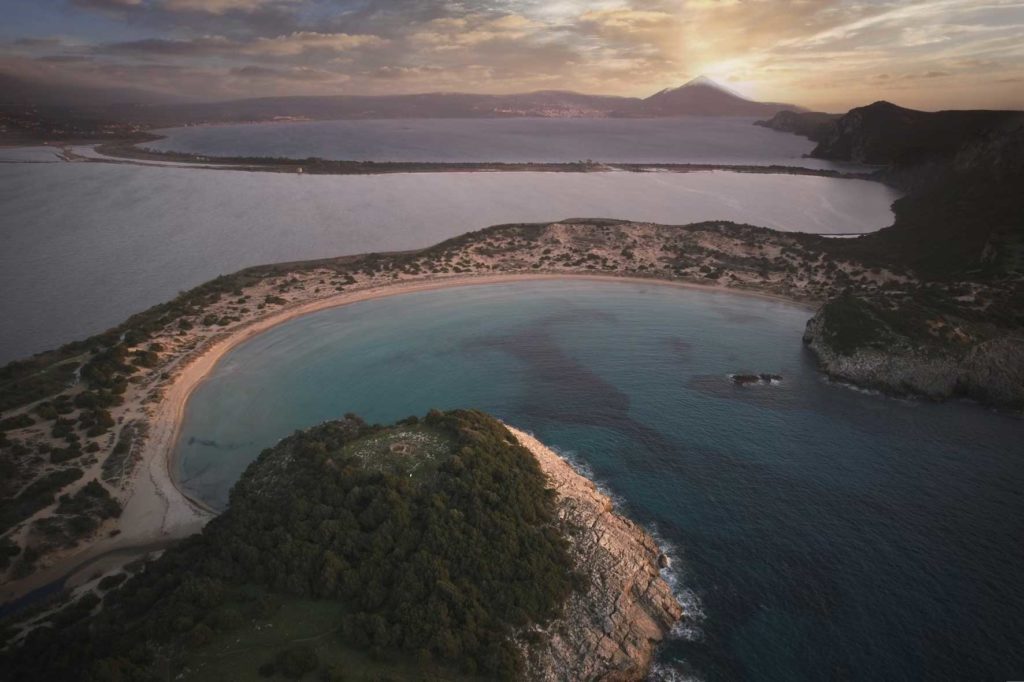
Greece in movies
“Mamma Mia!” (2008):
Plot: This musical romantic comedy follows the story of a young bride-to-be, Sophie, who invites three men from her mother’s past to her wedding on a beautiful Greek island. Through lively ABBA musical numbers and heartwarming moments, Sophie hopes to discover which of the men is her biological father.
Notable Actors: Meryl Streep, Amanda Seyfried, Pierce Brosnan, Colin Firth, and Stellan Skarsgård.
“Zorba the Greek” (1964):
Plot: Based on the novel by Nikos Kazantzakis, “Zorba the Greek” tells the story of a young British writer who travels to Crete and befriends Zorba, a charismatic and free-spirited Greek man. Through their friendship, the writer learns to embrace life’s joys and sorrows while immersing himself in Greek culture and traditions.
Notable Actors: Anthony Quinn, Alan Bates, and Irene Papas.
“Before Midnight” (2013):
Plot: Part of the “Before” trilogy, “Before Midnight” reunites Jesse and Céline, now a couple with children, on the enchanting Greek Peloponnese peninsula. As they navigate the complexities of their relationship, they engage in thought-provoking conversations against the stunning Greek landscape.
Notable Actors: Ethan Hawke and Julie Delpy.
“The Bourne Identity” (2002):
Plot: In this action thriller, a man suffering from amnesia is discovered adrift in the Mediterranean Sea with no memory of his past. As he tries to unravel the truth about his identity, he finds himself entangled in a deadly conspiracy that takes him to various European locations, including Greece.
Notable Actors: Matt Damon, Franka Potente, and Chris Cooper.
“Captain Corelli’s Mandolin” (2001):
Plot: Based on the novel by Louis de Bernières, this romantic war drama is set on the Greek island of Kefalonia during World War II. It portrays the love story between Pelagia, a local Greek woman, and Captain Antonio Corelli, an Italian officer stationed on the island.
Notable Actors: Nicolas Cage, Penélope Cruz, and Christian Bale.
“The Two Faces of January” (2014):
Plot: Set in Athens and other Greek locations in the 1960s, this psychological thriller follows a wealthy American couple who get involved in a dangerous game of deceit and betrayal after encountering a charming stranger.
Notable Actors: Viggo Mortensen, Kirsten Dunst, and Oscar Isaac.
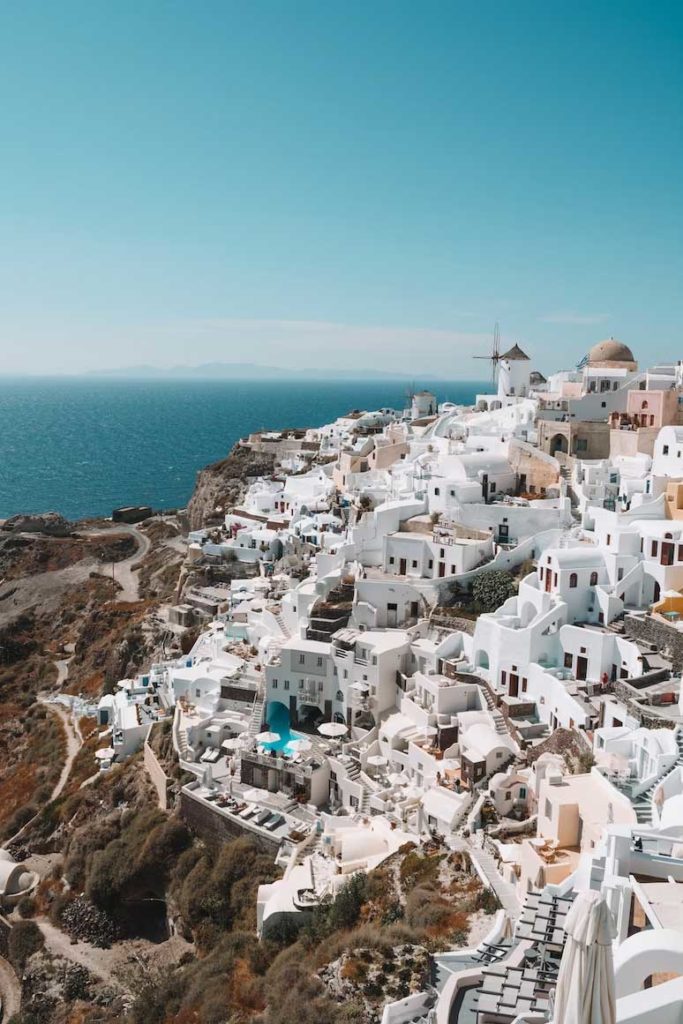
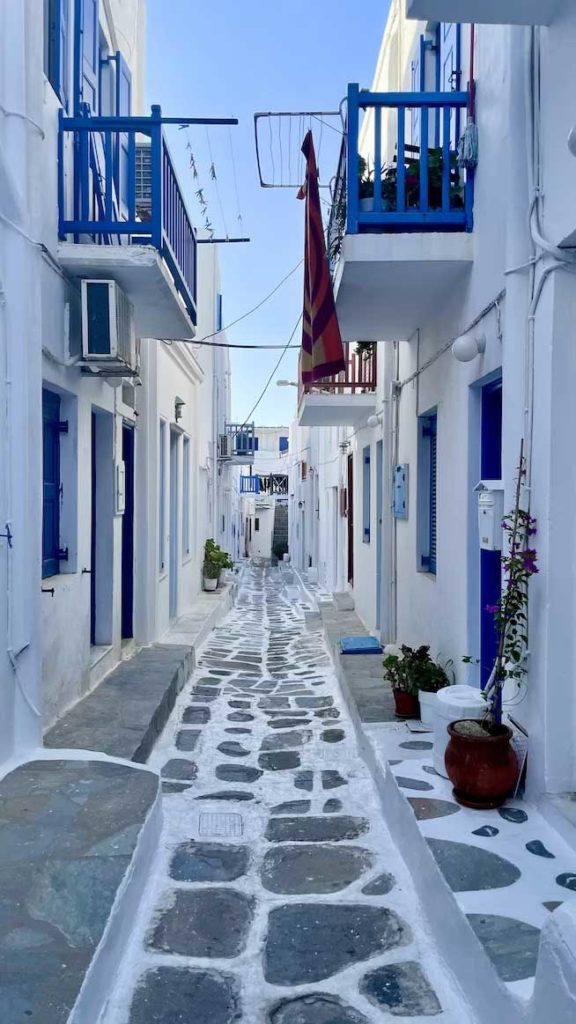
Greece in books
“The Odyssey” by Homer:
Regarded as one of the greatest epic poems of all time, “The Odyssey” tells the tale of Odysseus, the Greek hero, as he embarks on a perilous journey back home to Ithaca after the Trojan War. Filled with adventure, mythical creatures, and encounters with gods, this ancient Greek masterpiece is a timeless classic that captures the essence of Greek mythology and storytelling.
“Zorba the Greek” by Nikos Kazantzakis:
Set in Crete, “Zorba the Greek” follows the story of a young intellectual who meets Alexis Zorba, a charismatic and free-spirited Greek man. Through their friendship, the protagonist learns to embrace life’s joys and sorrows while immersing himself in Greek culture and the spirit of Zorba. This novel explores themes of love, freedom, and the pursuit of happiness.
“Captain Corelli’s Mandolin” by Louis de Bernières:
Set on the idyllic Greek island of Cephalonia during World War II, “Captain Corelli’s Mandolin” is a sweeping historical novel that weaves together a love story, war drama, and exploration of the complexities of human nature. It follows the lives of Pelagia, a young Greek woman, and Captain Antonio Corelli, an Italian officer stationed on the island. This book delves into themes of love, loss, and the impact of war on individuals and communities.
“The Greek Islands” by Lawrence Durrell:
Part of the “Alexandria Quartet” series, “The Greek Islands” offers a collection of travel essays by Lawrence Durrell, an acclaimed British writer. Through vivid descriptions and evocative prose, Durrell takes readers on a journey through the Greek islands, painting a captivating portrait of their beauty, history, and cultural significance. This book serves as a delightful exploration of the enchanting Greek archipelago.
“Eleni” by Nicholas Gage:
“Eleni” is a gripping memoir based on the true story of author Nicholas Gage’s search for the truth behind his mother’s execution during the Greek Civil War. Gage recounts his journey to uncover the circumstances surrounding his mother’s sacrifice and the impact of the war on his family and the Greek people. It is a powerful and moving account of love, resilience, and the pursuit of justice.
–
See our other travel guides.